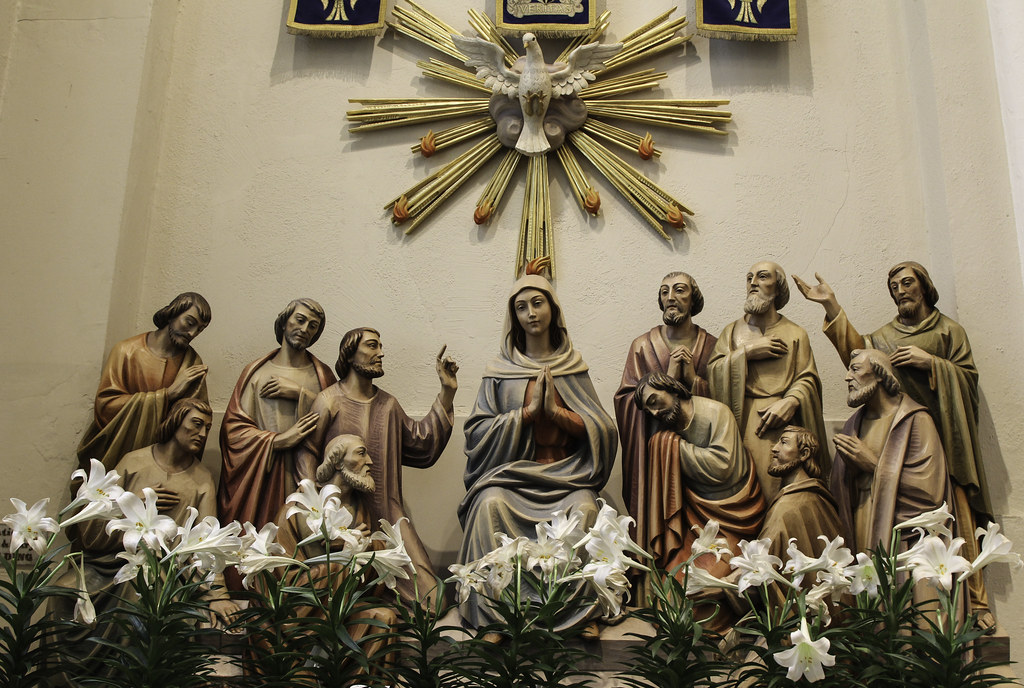Over the last several years artificial intelligence has moved out of science fiction and into our everyday lives. In the two years since its public launch in November 2022, ChatGPT has altered the academic landscape at places like the Christian liberal arts college where I teach. For my part, I have always been a bit of a dinosaur. If I am going to grade a term paper, I like to grade a physical copy turned in at the beginning of class. At least this used to be my preferred method. Now, based on the experiences and advice of my colleagues, I have to admit that these days may be past. I will be moving to an online submission format that allows for plagiarism detection this academic year. (Yes, I’m aware of the irony that I now need AI to help me catch students who plagiarize with AI.)
A Canary in the Coal Mine
While AI applications like ChatGPT have captured headlines, the advancements of AI extend far beyond the confines of the classroom. As Tyler Austin Harper notes in a recent piece for the Atlantic, tech company executives like Whitney Wolfe Herd, the founder and executive chair of the dating app Bumble, are proposing a kind of tech manifest destiny that far exceeds what we have seen thus far. During a recent interview for Bloomberg Live, Herd allowed herself to dream a bit about AI’s potential to reshape the dating landscape. Not only could AI “give you productive tips for communicating with other people,” Herd speculated that perhaps an AI “dating concierge could go and date for you with other dating concierges.”
Harper suggests that Herd’s seemingly flippant comment demonstrates “a window into a future in which people require layer upon layer of algorithmic meditation between them in order to carry out the most basic of human interactions.” And others share this concern about the growing role AI plays in the realm of dating and interpersonal relationships. For Harper, Herd’s pitch is more “a canary in the coal mine,” than far-fetched speculation. While Harper is careful to note that some AI programs might be beneficial to humanity, he is concerned that applications like those proposed by Herd “threaten to atrophy our life skills and independence.” Riffing on philosopher Ivan Illich’s 1977 idea that modern civilization had moved into an era of “Disabling Professions,” Harper describes our increasingly AI-saturated age as the “Age of Disabling Algorithms.” This time it’s the machines, not the professionals, to whom we anxiously look for approval in our day-to-day decisions.
Pentecost People in a Technological Society
It may have been the sobering nature of Harper’s argument that made me think a bit longer than usual about this piece; however, I’m inclined to think that it was more the timing of its publication that made yet another depressing reflection on the advance of AI stand out to me. Published on May 21st—only two days after the western church celebrated Pentecost—this article came across my screen during a week when the birth of the Church was at the front of my mind.
Pentecost, unlike Christmas or Easter, was never one of my favorite Christian holidays as a child. While folks on either end of the theological spectrum might at least note the passing of the day as either a rationale for contemporary practice (e.g. Pentecostals) or a season of the church calendar (e.g. Mainline Protestants and Catholics), we usually passed over Pentecost entirely in the straight-laced evangelicalism I grew up in. It was only as an adult that I started to wrestle with the implications of what the coming of the Holy Spirit meant for individual Christians and the Church as a whole. The more I dug into Christian theology, the more convinced I became that Pentecost was vital to the formation of a truly trinitarian Christian faith.
Perhaps this is why I was impressed yet again with the significance of Pentecost when I read Harper’s piece this May. Pentecost changes everything. It is the moment when the triune God of the universe make himself available to his people with unheard of immediacy and universality. Immanuel, “God with us,” is the claim of the incarnation, but in a real sense it is also the claim of Pentecost. According to Scripture, Jesus is currently embodied at the right hand of God interceding for us (Acts 2:33; Acts 7:55; Romans 8:34) while the Holy Spirit is present and active in our midst. (According to Jesus (John 17:7-15), this turn of events is actually better for us than if he had stayed bodily on earth.) Pentecost is the reason Paul can tell Christians in the church in Corinth that their individual bodies were the temple of God (I Corinthians 6:19). The presence of God may have once dwelt in a tabernacle and later a temple, but after Pentecost God dwells in the individual believer. This reality changes everything, including how God’s Spirit-filled people make decisions—a feature of life AI developers also happen to care a lot about.
The reality of God’s relational presence is one of the key contributions Pentecost offers as we seek to live well amid a technological society (AI included). As Reformed sociologist and lay theologian Jacque Ellul noted in his famous 1964 book The Technological Society, a society can be described as technological not because of its specific technology or gadgets (though these can be a contributing factors); rather, a technological society is defined by what Ellul terms technique. For Ellul, technique is the commitment to the rational and methodological pursuit of “absolute efficiency … in every field of human activity”(xxv).
It’s easy to see how the AI advancements suggested by Silicon Valley executives like Herd are born out of and contribute to this drive for efficiency. Wouldn’t it be easier to have an AI dating concierge do the hard work of winnowing out the bad dates for you like a relationship combine that mechanically sifts out grain and leaves the chaff behind?
Easier? Perhaps. More human? No.
It is this distinction—this dehumanizing trade off of personal presence for heightened efficiency at any cost—that seems to have been humanity’s perpetual temptation. In a sense, this desire to achieve a result more efficiently was the temptation Adam and Eve faced in the Garden. It also motivates the builders of the Tower of Babel, who implemented a human technology to reach toward the heavens. Given the connection between Babel and Pentecost, it makes sense that Acts 1 prefaces the giving of the Holy Spirit with the disciples’ desire for a mechanism to ease the anxiety of choosing in the days leading up to Pentecost.
The Church has long treated Holy Saturday—the Saturday between Good Friday and Easter Morning—as an anomaly in the church year. It is the one day in the church year that Jesus is absent. Many churches avoid celebrating communion on Holy Saturday to signify this absence. But Holy Saturday is not the only liminal period Christ-followers faced in the weeks following the crucifixion. Several of the gospels and the first chapter of Acts describe Jesus’ ascension forty days after his resurrection. In the forty days leading up to his ascension, Jesus appeared to many (Luke 24; John 20; I Corinthians 15:3-7), ate with his disciples (Luke 24:41-43; John 20:13-15), and helped them better understand the significance of his life and ministry (Luke 24:44-49; Acts 1:3). Then, on the fortieth day, he ascended bodily to heaven and was gone once again (Mark 16:19; Luke 24:51; Acts 1:9).
To the disciples’ credit, their reaction to this second departure demonstrated more faith than their reaction the first time Jesus left them. (That time they reacted to his death by gathering in a fearful huddle inside locked doors.) In their post-ascension waiting, the disciples and many others who believed gathered together to pray and wait (Acts 1:14; 2:1) for the helper Jesus had promised (John 16:7-15; Acts 1:4-5). But they did more than just pray and wait in the upper room. This time they made at least one major decision: they appointed an apostle to function as successor to Judas Iscariot.
But how did they do it? It is not a hard argument to make that they did it in the most efficient way possible. They cast lots.
Casting lots had a long history among the Jewish people. In the Torah, God had himself given this method to his people as a way of making difficult decisions and seeking divine direction (Keener, 776-779). The fact that the disciples cast lots to choose Judas’s successor makes sense as an efficient and historically consistent method of decision making.
The fascinating thing is that this is the last time the Bible records the people of God using this means of decision making (see F. F. Bruce, The Book of Acts, Revised Edition, NICNT (Grand Rapids, MI: Eerdmans, 1988), 47; I. Howard Marshall, Acts, TNTC (Grand Rapids, MI: Eerdmans, 1980), 66-67). What ended this centuries-old practice? It would seem that Pentecost did.
In Acts 15—a chapter that describes an emotionally fraught meeting known as the Jerusalem Council—we see this post-Pentecost shift on full display. As leaders in the Church wrestle with the question of whether gentiles can be included in the family of faith without being circumcised and becoming Torah-observant Jews, the future of the fledgling Church is at stake. If there was ever a time to choose the most efficient tool for discerning God’s will in one easy step this was surely it. Roll the dice. The answer would be yes or no.
This time, however, the apostles and leaders of the Church don’t cast lots. Instead, these leaders lean into the relational presence of God. After hearing from influential voices on either side of the issue, the leaders present at the Jerusalem Council take time to listen to another voice—the voice of the Holy Spirit. In Acts 15:28, Luke reports the decision of the council as published in an open letter that is to be delivered to churches throughout the region. Here is how one portion of his report reads: “For it has seemed good to the Holy Spirit and to us to lay on you no greater burden than these requirements” (Acts 15:28 ESV). This time there would be no lots cast. Instead, the Church relied on relationship rather than a technique. This shift was possible because the assembled group was made up of individuals who were each filled with the Spirit of the Living God.
This reality changed everything. It gave a confidence and decision-making framework that was consistent with the humanity of each individual participant in the Council. The God who had created each of them as embodied humans chose to work with them in their humanity. Far from pushing the Church away from embodied humanity or outsourcing the decision-making process to the efficiency of a technique, the post-Pentecost Church discovered a new way of making decisions based on God’s presence with his people through the indwelling of the Holy Spirit.
God’s Empowering Presence in the Church
If the indwelling Holy Spirit represents what the Apostle Paul repeatedly emphasizes as “God’s Empowering Presence,” in the life of the individual believer, so, too, the presence of the Holy Spirit in the midst of Church can empower God’s people to live with humble confidence and wisdom corporately (Fee 5-9). Paul, hardly a modern individualist, was always attuned to the special way God filled his gathered people. Paul might have emphasized to believers in Corinth that each of their bodies was a temple of God to help them think more clearly about the defiling nature of sexual promiscuity, but Paul was equally clear earlier in the same letter when he asked the gathered assembly of believers in Corinth, “Do you not know that you are God’s temple and that God’s Spirit dwells in you” (I Corinthians 3:16)? In this verse, Paul’s emphasis is on the way in which God dwells, not in the individual believer, but in the Church as a whole, so depending on where one is from the emphasis could be “you all,” “ya’ll,” or “yinz.” Somehow, in a way we still have trouble fully comprehending, following Pentecost the Holy Spirit dwelt with a new degree of presence in the gathered Church.
If we take one more look at the events of the Jerusalem Council in Acts 15, we see how this new Spirit-empowered and relational method of navigating life’s greatest difficulties shows up. We have already established that those present in the gathering heard from the Holy Spirit (“it seemed good to the Holy Spirit,” Acts 15:28), but we have not said anything thus far about the second half of this statement. What do we make of the last three words of Acts 15:28—“…and to us?”
These three words point to a Spirit-filled community like the one Paul addressed in his first letter to the church in Corinth. When joined in relationship to God and to each other, the post-Pentecost Church was able to draw on the empowering presence of God to make crucial decisions and navigate unforeseen perplexities. As they did, they (each and all) drew on the power of God’s indwelling Spirit to be more human, more like the creatures God had envisioned them to be when God first created humanity from the dust.
Pentecost and the Goodness of Being Human
By assisting and empowering God’s people as they navigate the perplexities of life, the Holy Spirit does what AI cannot. The Spirit helps the Church make decisions without dehumanizing those involved. This is part of God’s modus operandi. When anyone other than God takes on this role, slavery of one kind or another ensues. Perhaps this is why the Bible talks about those who are under the scourge of demonic forces as being afflicted or possessed, while those who have a relationship with God through Christ are filled with the Holy Spirit. To be possessed conjures up the chains of slavery or the strings of a marionette. One’s agency—indeed, one’s humanity—suffers in this setting. However, when believers are filled with or inspired by the Holy Spirit, the biblical sense is more of relational participation. One retains one’s own ability to choose, but this ability is willingly submitted to the beauty, truth, and goodness of the God who loves each of us more than we can comprehend.
The inspiration of Scripture provides an example of how finite creatures participate through the work of the Spirit in the life of the infinite God. Most who read the four canonical gospels in succession become aware rather quickly that each gospel communicates the good news of Jesus with slightly difference emphases, pacing, tone, and word choice just to name a few. Why is this? Why not simply have one account dictated verbatim by God on high, as Islam claims for its sacred text?
Because the God of the Bible is not a puppet master. He values his creatures. He chooses to work in relationship with them, rather than simply using them as unthinking copyists. He does this because he values us (John 3:16). He does this because he has knit us together in our mother’s wombs (Psalm 139) and has thus made each of us, and all of us, for a reason. We retain our uniqueness while also being led by the sovereign wisdom and goodness of God. In this way, the Holy Spirit connects us to God and others relationally and treats us with the dignity those who bear the image of God deserve. In our relationship with God through his Spirit, we are never simply a number or a data point.
But this is not how AI treats us.
Rather than empowering us to live in humble confidence in relationship with others and our maker, AI offers us a choice similar to that which confronted Esau. AI will “help” us accomplish a task with greater efficiency, and thus may seem to solve some of our immediate problems. In the end, however, we may find that that we—like marionettes strung along by the strings of “a world of algorithms that leave people struggling to be people without assistance”—have actually sold the birthright of our humanity for a mess of pottage.
Pentecost provides an alternate way.
The empowering presence of God offers a path between the anachronistic hope of self-reliance in some pre-technological golden age while also providing an alternative to the anxiety that AI developers believe their apps will quell. We don’t need machines to think, decide, or date for us when we are in relationship with our Maker who dwells within us and with the other members of the Church constituted through the indwelling Holy Spirit. While AI decision making always threatens to dehumanize us by treating us as either data points or would-be consumers, God’s Spirit within us works to form us via love and relationship for our individual good and the common good of all. In an Age of Disabling Algorithms, we need God’s empowering presence more than ever.
Image via Flickr




